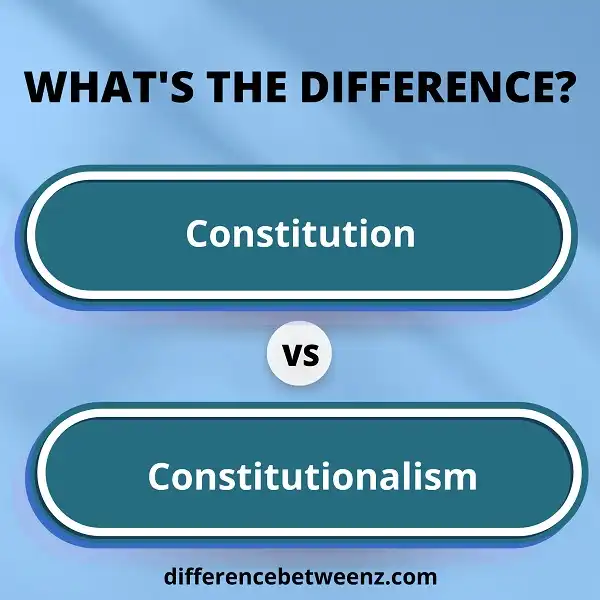People often use the terms “constitution” and “constitutionalism” interchangeably, but there is a distinction between the two concepts. The constitution is a document that outlines the structure of a government and the basic rights of citizens. Constitutionalism refers to the idea that the government should be based on principles laid out in the constitution. It’s a system of government that is intended to protect individual rights and prevent tyranny. While all constitutions are constitutionalism, not all forms of constitutionalism are based on a constitution.
What is Constitution?
The Constitution is a document that outlines the basic laws and beliefs of the United States of America. It was written in 1787 by a group of delegates from the 13 original colonies, and it has been amended 27 times since then. The Constitution sets out the structure of the government and establishes the rights of citizens. It also outlines the process by which laws are made. The Constitution is a living document that has played a vital role in shaping the course of American history.
What is Constitutionalism?
Constitutionalism is a political system in which the government is limited by a written or unwritten constitution. Constitutional governments are typically characterized by separation of powers between the executive, legislative, and judicial branches, as well as a bill of rights or other protections for individual liberties. Constitutionalism began to develop in medieval Europe as a response to the absolute rule of monarchs, and it has since spread to countries around the world. While there is no single definition of constitutionalism, it remains an important ideal for many democracies.
Difference between Constitution and Constitutionalism
Constitution and Constitutionalism are two words that are often used interchangeably, but there is actually a difference between the two concepts. A Constitution is a document that outlines the structure and function of a government.
- It usually includes things like the distribution of power, the rights of citizens, and the procedures for making laws. Constitutionalism, on the other hand, is an approach to government that is based on the idea that the Constitution is the supreme law of the land and that all officials must operate within its bounds.
- In other words, Constitution is what a government is supposed to look like, while Constitutionalism is how a government is actually supposed to work. This distinction is important because it helps to explain why some countries have constitutions but don’t always operate in a Constitutional manner.
- In fact, many countries around the world have struggled to establish constitutional governments despite having Constitutions in place. Constitution alone is not enough; there must also be a commitment to Constitutionalism in order for a country to truly benefit from having one.
Conclusion
The Constitution is a document that outlines the structure of the government and the rights of citizens. Constitutionalism is a philosophy that holds that the Constitution should be interpreted and amended as needed to meet the changing needs of society. There are many benefits to constitutionalism over strict interpretation of the Constitution. First, constitutionalism allows for flexibility in meeting the needs of society. Second, it ensures that changes happen through democratic means rather than through judicial activism or amendments pushed through by special interest groups. Finally, constitutionalism protects individual rights and liberties. While there may be some drawbacks to this approach, such as occasional gridlock, on balance constitutionalism is a better way to govern our country than adherence to the letter of the Constitution alone.


